- CEO of South/South West Hospital Group
- Managers’ views sought on living wills
- New Endoscopy Suite at Mallow
- State of the art Coombe delivery suite
- CEO appointed to HRB
- Assessing all Ireland cardiac needs
- Patients lack knowledge of generic medicine
- Professional competence guidelines for EMTs
- Planning date for new children’s hospital
- Children’s Hospital Satellite Centres
CEO of South/South West Hospital Group
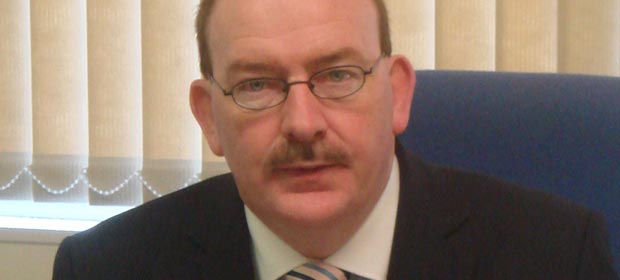
Mr. Gerry O’Dwyer has been appointed as CEO of the South/South West Hospital Group. He takes up his new post on March 3.
Mr. O’Dwyer was previously HSE Regional Director for Performance & Integration. He has previously worked as Regional Director of Operations for the HSE in Dublin Mid-Leinster, Hospital Network Manager for the HSE South and Chief Executive of Our Lady’s Children’s Hospital, Crumlin, Dublin.
He is a long standing member of the HMI, currently holding the post of Director of Education.
A native of Kinsale, Co. Cork. He is also currently Vice President of the European Association of Hospital Managers which covers 28 European countries.
Managers’ views sought on living wills
Health managers have until Friday, March 7 to make submissions on proposed new legislation governing living wills.
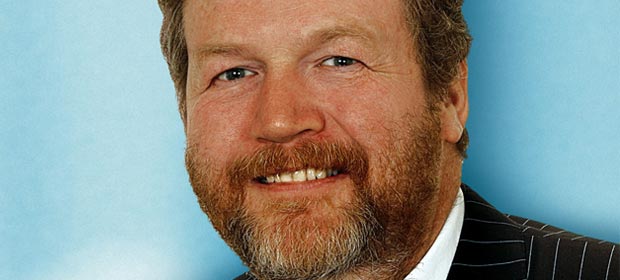
Living wills (officially termed advance healthcare directives) are statements made by adults with capacity setting out their wishes in relation to the type and extent of medical treatments they would or would not want to receive in anticipation of future incapacity to make decisions.
Health Minister Dr. James Reilly has arranged a public consultation on the new draft legislation – the general scheme of legislative provisions for advance healthcare directives to be incorporated into the Assisted Decision-Making (Capacity) Bill 2013.
The Minister said: “Advance healthcare directives represent an important means by which people can exercise their autonomy, which is an integral component of a patient-focused model of healthcare.
“Given that there is currently no specific legislation pertaining to advance healthcare directives in Ireland, incorporating provisions for advance healthcare directives into the Assisted Decision-Making (Capacity) Bill 2013 represents an efficient and practical method of consolidating the law in this area.”
The Department of Health said that the purpose of the Assisted Decision-Making (Capacity) Bill 2013 is to reform the law and to provide a modern statutory framework that supports decision-making by adults and that enables them to retain the greatest amount of autonomy possible in situations where they lack or may shortly lack capacity.
It says the Bill proposes to change the existing law on capacity, shifting from the current ‘all or nothing’ status approach to a ‘flexible functional’ one, whereby capacity is assessed on an issue and time-specific basis. The guiding principles for this Bill include: the presumption of capacity; and that, where practicable, interventions must give effect to an individual’s past and present will and preferences in so far as they are reasonably ascertainable.
The proposed legislative provisions do not in any way pertain to euthanasia or assisted suicide.
A discussion document is available online at www.dohc.ie/consultations. It sets out the draft general scheme and some structured questions to help interested parties focus their submissions. Submissions should be no more than ten pages and can be submitted by post to: Bioethics Unit, Department of Health, Room 8.3, Hawkins House, Hawkins Street, Dublin 2, or by email to advancedirectives@health.gov.ie
All submissions received will be subject to the Freedom of Information Acts 1997 & 2003 and may be released in response to a Freedom of Information request.
New Endoscopy Suite at Mallow
A new endoscopy suite has been opened at Mallow General Hospital as part of a €4.5 million capital investment in the hospital. The new suite is a modern, patient-centred build with two procedures rooms, a first stage recovery room and a discharge lounge, which replaces the existing endoscopy facility.
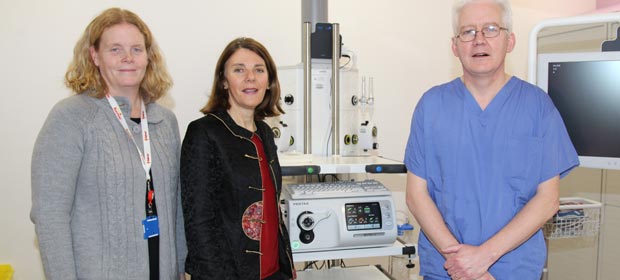
The following endoscopies can be performed at Mallow General Hospital: gastroscopy, sigmoidoscopy, colonoscopy and bronchoscopy.
The new endoscopy suite has the capacity to do an additional 1,000 endoscopies annually. Currently there are approximately 2,000 endoscopies per year performed at Mallow General Hospital, which means that the hospital now has the capacity to do in excess of 3,000 annually.
Dr. Neil Cronin, Consultant Physician and clinical lead for the new unit at Mallow General Hospital, welcomed the opening of the endoscopy suite and stated, “We have been working towards re-organising services at Mallow General Hospital over the last number of years. Part of this was a major extension to Mallow General Hospital for a replacement endoscopy suite and a new medical assessment unit. The management team is pleased that the new build is now complete, which brings the re-organisation of services at the hospital near to completion. The hospital is now in a very strong position to continue delivering healthcare services to benefit patients, staff and the local community in Mallow and north Cork.”
The opening of the new endoscopy suite follows on from the re-organisation of other services. A Local Injury Unit (LIU) and Medical Assessment Unit (MAU) opened in March 2013. Both are now operating well and treating increasing patient numbers.
In the first eight months since opening, over 3,000 patients have been seen in the Local Injury Unit and over 3, 500 attended the Medical Assessment Unit.
State of the art Coombe delivery suite
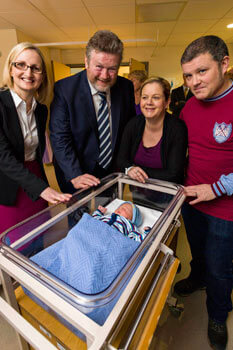
A new state of the art delivery suite has been opened at the Coombe Women and Infants University Hospital, Dublin.
The suite has 11 single en suite delivery rooms, a fully equipped emergency obstetric theatre, a high dependency unit and a new pool room for women in labour, two observation rooms for women who are not in labour but require monitoring and new bariatric facilities for patients with an increased BMI.
The pool room is designed for low-risk women who wish to experience the benefits of hydrotherapy during labour. They can then go on to deliver in the same room, minimising unwanted disturbance and disruption.
The new suite was funded by €4.75 million from the HSE. A donation was also provided by the Friends of the Coombe Charity.
Dr. Sharon Sheehan, Master of the CWIUH said: “The dedication and teamwork displayed by all involved in this project allowed us not only to complete the works ahead of schedule, but to do so while maintaining a full and safe service for our mothers and babies.”
Construction of the delivery suite took place in three phases over 70 weeks and it was completed six weeks ahead of schedule and within budget. During this time, one set of quads, eight sets of triplets, 228 sets of twins and 10,987 other babies were delivered.
CEO appointed to HRB
The new CEO of the Health Research Board is Dr. Graham Love, who took over from Mr. Enda Connolly at the end of January.

Dr. Love moves to the HRB from Molecular Medicine Ireland, where he was Chief Executive Officer. He was previously Interim Director General and Director of Policy and Communications with Science Foundation Ireland, He has also been Chief Executive of the Multiple Sclerosis Society and worked with the management consulting firm Accenture.
Dr. Love, who has a B.Sc (Hons) in pharmacology and a PhD in vascular cell biology, takes up his new appointment this month.
Assessing all Ireland cardiac needs
A team of three international clinicians is carrying out an independent assessment of current and future needs for cardiology and cardiac surgery for congenital heart disease in the Republic of Ireland and Northern Ireland.
This was announced by Health Minister, Dr. James Reilly TD and Northern Ireland Health Minister, Edwin Poots MLA.
The assessment team will describe the existing hospital services in both jurisdictions, outline options for service configuration and governance arrangements and report to both Ministers jointly, recommending the most appropriate model that meets the population health needs and other requirements of both jurisdictions.
The team is chaired by Dr. John Mayer, consultant cardiac surgeon at Boston Children’s Hospital. The cardiology expertise is provided by Dr. Adrian Moran, consultant cardiologist at Maine Medical Center, Portland and the team is supported by specialist professional nursing representation and other expertise as required.
The Ministers said the assessment will address the needs of children and adults in relation to congenital cardiac surgery on the whole island. The study which began in January is due to be completed in June.
In the interim, health service management and clinicians in the Republic of Ireland will continue to work with their colleagues in Belfast to provide and develop support to the services in Northern Ireland.
“The Ministers recognise that the development and implementation of any safe and sustainable model of care requires careful planning, effective engagement and buy-in of all stakeholders, in particular family representatives and professionals, and this assessment is seen as essential to the achievement of that shared goal,” they said.
A paediatric congenital cardiac services working group in Northern Ireland and the related Children’s Heartbeat Trust recommended that regional paediatric cardiac surgery and interventional cardiology for Northern Ireland should be centred in Our Lady’s Children’s Hospital Dublin. However, In May 2013, the Northern Ireland Assembly, called on Mr. Poots to reject this recommendation and select a model which retained primary provision and the ability to operate on emergency admissions in Belfast.
Responding to the motion, Mr. Poots said that there was no easy solution. He heard from one side that, if you took a decision to remove services from Belfast and have surgical services provided outside Belfast, children will lose their life. He heard people from the other side say that, given the complexity of paediatric congenital cardiac surgery, children would lose their life if the service was not based at a larger centre. He remarked at the time that you would need the wisdom of Solomon and a whole lot more to get this right.
Clinical advice was that surgeons doing interventional work should individually carry out in the order of 100 of these procedures each year to maintain skills and expertise. Patient numbers in Northern Ireland were so small that they would never be able to reach the recommended capacity levels on their own
“Having considered all of the advice that has been put to me, I take the view that the only prospect for retaining children’s heart surgery in Belfast on a long-term basis is to forge a children’s heart services integrated network arrangement between the Belfast Trust and the Dublin children’s heart centre. This network offers the prospect of a single service, providing surgery in both Belfast and Dublin. I cannot guarantee that such a model would necessarily provide a solution in the longer term, but it is only right that I should exhaust every avenue to find out if it would be possible to deliver a model such as that. It is also only right that I am guided by the best possible expert professional advice in considering this. Such decisions matter too much to get wrong,” he said.
Mr Poots added: Our Lady’s Hospital has advised Belfast trusts that it cannot guarantee at this time that it can continue to take the transfer of 20 to 30 emergency cases during 2014. Therefore, it is essential that we retain a surgical service in Belfast that can provide support if necessary. Some of those children would have to travel to England as well. So, given the nature and complexities of all those things, it has to be left entirely to the surgical teams and the clinicians to make those difficult decisions in conjunction with talking to the parents so that they fully understand all the issues.”
Patients lack knowledge of generic medicine
Thirty one per cent of patients had no knowledge of generic medicines, 24 per cent viewed generics as poorer quality than originators, and 18 per cent thought they didn’t work as well, according to a study investigating Irish patient perceptions of generic medicines.
 The study carried out by researchers at the University of Limerick also showed that nearly 90 per cent of patients would take a generic if prescribed by their GP, but 24 per cent would prefer the originator medicine if offered a choice.
The study carried out by researchers at the University of Limerick also showed that nearly 90 per cent of patients would take a generic if prescribed by their GP, but 24 per cent would prefer the originator medicine if offered a choice.
The study on how generic medicines were perceived amongst patients was carried out in the time leading up to the enactment of the new legislation in June 2013.
Suzanne Dunne, PhD candidate, UL Graduate Entry Medical School (GEMS), said “The study has shown that Irish patients’ understanding of generic medicines may have been overestimated in previous reports. Simple “Do you know what a generic medicine is?”-type surveys do not capture the potential misunderstanding or confusion caused by the term. For instance, we determined that some patients confuse the work “generic” with “genetic”. Such misinterpretation can only be detected by spending more time with patients than is usual in brief vox pop surveys.”
Spending on pharmaceuticals in Ireland is high, the highest in the EU per capita in 2010. The annual cost of medicines under the state-funded drugs scheme increased from €564 million in 2000 to €1.961 billion in 2009. The Irish government has recognised that increasing usage of generic medicines has the potential to make significant savings.
Professor Walter Cullen, PhD supervisor and Chair of General Practice in UL said “This study has shown that patients are not fully aware of what generic medicines are and express doubts as to their quality. Despite these misgivings, patients exhibit a high degree of trust in their medical professionals and would take a generic drug if prescribed by a trusted physician”.
Professional competence guidelines for EMTs
Professional Competence Guidelines have been distributed to all Emergency Medical Technicians (EMTs) to inform them of the new requirements for continuous professional competence introduced for the first time in Ireland.
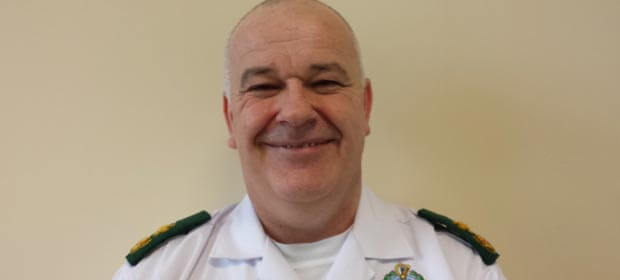
Since November 2013 Emergency Medical Technicians (EMTs), Paramedics (Ps) and Advanced Paramedics (APs) must be registered with the Pre-Hospital Emergency Care Council in order to legally practice in Ireland. The new guidelines will enable practitioners to update and develop knowledge, skills and attitude thereby supporting professional competent practice.
The guidelines were developed by Shane Knox (Assistant Chief at the National Ambulance College & PhD candidate at University of Limerick) and Prof Colum Dunne (Graduate Entry Medical School, UL) and form part of an initiative at UL to better understand the knowledge, attitudes and awareness of Irish emergency service providers to professional development and competence.
Shane Knox explained that “through ‘town-hall’ meetings, surveys and interviews across Ireland the perspectives of practising EMTS, paramedics and advanced paramedics regarding how they would like to be trained have been captured. Unsurprisingly, given the nature of the role, there is a preference for a mix of practical or hands-on and theoretical education. This is reflected in the guidelines.”
In healthcare, advances are continually being made in techniques, therapies, medications and clinical concepts that can improve the quality and safety of care for patients. In recent years the pace of this change is accelerating and so too is the public and patients’ expectation of care standards.
Prof. Dunne, said “To date, little research has been conducted with Pre-Hospital Emergency Care Council (PHECC) registered practitioners in general or on EMTs and CPD/C internationally. This survey is the first to ascertain the opinions of EMTs regarding continuous professional competence in terms of what is being completed currently, and how it may be developed in Ireland in the coming years. Having engaged with almost 1,000 EMTs, it is very clear that there is genuine enthusiasm for continuous professional competence and recognition that it is an important aspect of professionalism. Our evidence places an emphasis on practical aspects , such as Cardiac First Response, maintaining a portfolio of evidence, completing operational shifts with paramedics and advanced paramedics, and a blended learning approach with e-learning.
Planning date for new children’s hospital
A planning application for the new children’s hospital is due to be submitted by Autumn 2014, according to the Department of Health
It says, the clearing of the St James’s site is underway and once the site has been fully cleared, construction will commence in 2015.
The new children’s hospital is the largest, most complex and significant capital investment project, ever undertaken in healthcare in Ireland. It will bring together into one entity the three existing children’s hospitals – Our Lady’s Children’s Hospital Crumlin, Temple Street Children’s University Hospital, and the National Children’s Hospital at Tallaght Hospital.
It will be tri-located on one campus with St James’s Hospital and a planned maternity hospital. This tri-location model of service delivery is being undertaken to ensure the best outcomes for our children and young people, for mothers and for infants.
The new children’s hospital will be a world-class facility providing secondary paediatric services for the greater Dublin area and specialist services for the country as a whole. It will be part of an integrated national clinical network with the other paediatric units throughout Ireland. The new children’s hospital specialist staff will hold specialist clinics in regional hospitals, supporting services in a shared approach with their regional clinician colleagues.
Children’s Hospital Satellite Centres
Health Minister, Dr. James Reilly has announced that construction of satellite centres of the new children’s hospital will go ahead on the campus of Tallaght Hospital on the southside of Dublin and Connolly Hospital on the northside of Dublin.
Both centres will be established in advance of the main hospital opening, with an estimated completion date of mid-2016, subject to detailed site studies and planning consent.
He said the satellite centres are being developed to enhance access to emergency/urgent care facilities for children in the Greater Dublin Area. As well as urgent care, each centre will also provide secondary acute outpatient services, including rapid access general paediatric clinics.
The Department of Health said: “Each centre will provide consultant-delivered urgent care, with observation beds (4-6 hour) and appropriate diagnostics. It is anticipated that the centres will open from 07.30 to 22.00. The majority of patients attending the centre will be treated and discharged. Critically ill and injured children will be stabilised by appropriately trained staff and transferred to the main site (using a retrieval and transport service). Similar models elsewhere show around 2% transfer to the main site (in this model it may be 5-8%, depending on opening hours as children who arrive close to closing time and require ongoing observation/care may need to be transferred). The centres are projected to provide 41% of urgent acute care in the Greater Dublin Area, equivalent to 50,000 attendances annually.
“Co-locating satellite units with an adult hospital provides the opportunity to share clinical and non-clinical support services with the adult hospital, such as pathology, pharmacy, sterile services, biomedical engineering, facilities management and diagnostics.”

